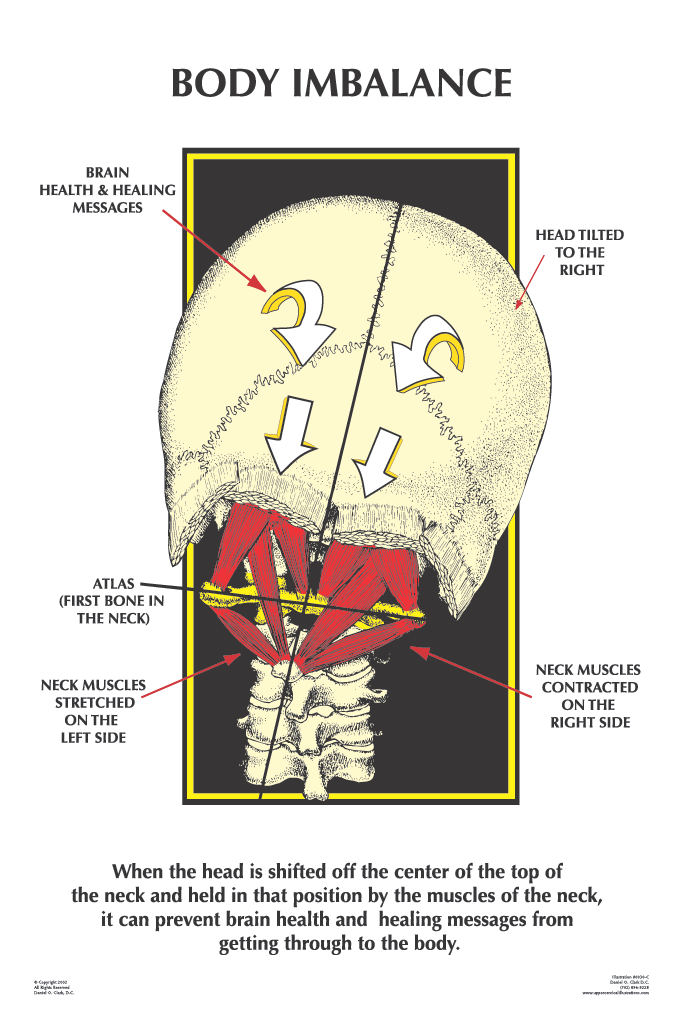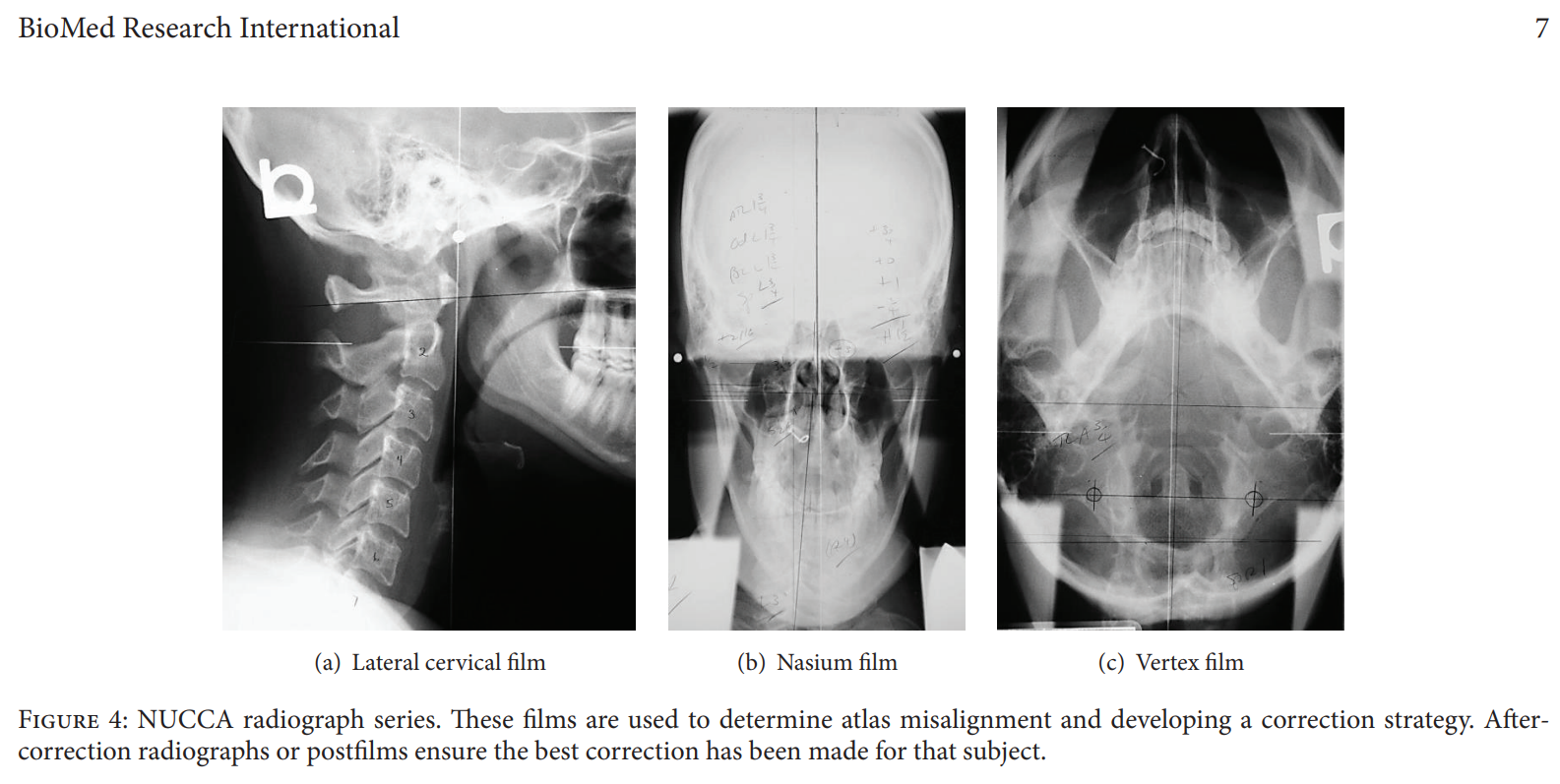
Reprinted with permission from Daniel O. Clark, D.C. Copyright 2021 www.uppercervicalillustrations.com
Why the Neck?
An injury to the head and neck can cause tissue damage in a complex way. The structural misalignment in the upper neck can cause a wide variety of neurological health problems in different parts of the body.
The upper neck is the weakest part of the human spine. If you hurt your head or neck, it can mess up the tissues in a complex ways. Your brain sends a ton of signals through this specific area, almost like a big highway of nerves. Even a tiny shift in the upper neck can stress these area called the brainstem (more specifically, the lower part of the brainstem and upper cervical spinal cord). When this happens, it’s like a traffic jam in your body’s communication system, causing things to be out of balance. It’s like a bad connection between your brain and body. This specific problem is called the Atlas Subluxation Complex.

Woodfield HC 3rd, Hasick DG, Becker WJ, Rose MS, Scott JN. Effect of Atlas Vertebrae Realignment in Subjects with Migraine: An Observational Pilot Study. Biomed Res Int. 2015;2015:630472. doi: 10.1155/2015/630472. Epub 2015 Dec 10. PMID: 26783523; PMCID: PMC4689902.
Why Even Small Injuries Can Have Big Effects on Your Body
If you have ever experienced a significant impact to your body such as car accidents, sports injuries, falls, or bump to the head, the force on the upper neck may not have been avoidable. Even if the damage to the vehicle is minimal, the body cannot avoid absorbing the forces from the impact. Whiplash injury is often dismissed and neglected as a minor soft tissue injury. However, the head and neck misalignment can lead to chronic health problems such as headache, dizziness, loss of balance, neck stiffness, tingling and numbness in the arm and legs, low back pain, digestive problems, poor posture, and more.
If you’ve ever had a significant impact to your body, like from car crashes, sports, falls, or even just bumping your head, your neck is likely injured a hit too. Even if the car looks okay, your body still feels the force of the crash. People sometimes brush off whiplash as just a minor injury. But if your head and neck aren’t lined up right afterwards, it can lead to long-term issues. You might get headaches, feel dizzy, have a hard time balancing, feel stiffness in your neck, or even feel tingling in your arms and legs. You might also experience lower back pain, digestive troubles, or just stand and walk a bit differently.

